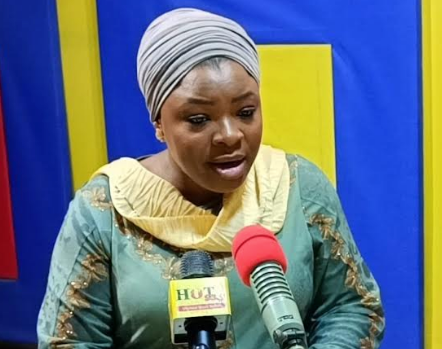The recent controversy surrounding Sammy Gyamfi, the National Communications Officer of the ruling National Democratic Congress (NDC) and CEO of the Ghana Gold Board, and Evangelist Patricia Asiedu Oduro Koranteng, also known as Nana Agradaa, has ignited a political firestorm in Ghana. A viral video depicting Gyamfi handing US dollars to Nana Agradaa, a self-proclaimed repentant priestess, prompted the opposition New Patriotic Party (NPP) to demand Gyamfi’s dismissal, citing concerns about corruption. This demand, however, has been met with strong resistance from the government, particularly from Deputy Presidential Spokesperson Shamima Muslim, who argues that the NPP lacks the moral authority to criticize the incident. The ensuing debate has brought to the fore deeper issues of political accountability, hypocrisy, and the ongoing struggle against corruption within the Ghanaian political landscape.
Shamima Muslim’s central argument hinges on the NPP’s perceived hypocrisy in demanding Gyamfi’s dismissal while remaining silent on the alleged financial improprieties of their own former Minister of Sanitation and Water Resources, Cecilia Dapaah. Dapaah was embroiled in a scandal involving the discovery of large sums of money, including one million US dollars and three hundred thousand euros, in her home. Muslim contends that the NPP’s silence on the Dapaah case undermines their credibility in calling for Gyamfi’s dismissal. She points to the irony of the NPP’s concern over Gyamfi’s handling of dollars while overlooking a significantly larger sum of foreign currency allegedly held by one of their own ministers. This comparison, according to Muslim, exposes the NPP’s double standard and casts doubt on the sincerity of their anti-corruption stance.
Furthermore, Muslim criticizes the NPP for not providing a satisfactory explanation for the large sum of money found in Dapaah’s possession. She highlights the incongruity of the situation, particularly given the NPP’s previous warnings about the depreciation of the Ghanaian cedi and their advice to citizens to keep their money in bank accounts. The discovery of such a large amount of cash in a minister’s home, Muslim argues, contradicts the NPP’s own financial advice and raises serious questions about the source and intended use of the funds. The lack of transparency surrounding the Dapaah case, she suggests, further weakens the NPP’s moral standing to criticize Gyamfi.
The timing of the NPP’s demand for Gyamfi’s dismissal also contributes to Muslim’s argument. She suggests that the NPP, having suffered a significant defeat in the 2024 general elections, should focus on introspection and addressing the reasons behind their loss rather than engaging in what she perceives as politically motivated attacks against the ruling party. Muslim implies that the NPP’s focus on Gyamfi’s actions serves as a distraction from their own internal issues and a way to deflect attention from their electoral defeat. This strategic maneuvering, she contends, further diminishes the validity of their demands.
The controversy surrounding Sammy Gyamfi and Nana Agradaa has become a proxy battle in the larger war of political narratives within Ghana. The NPP frames the incident as evidence of the NDC’s alleged tolerance for corruption, while the NDC counters by pointing to the Dapaah case as proof of the NPP’s hypocrisy. This exchange underscores the deep-seated partisan divisions within Ghanaian politics and the tendency for accusations of corruption to be used as political weapons. The focus on individual cases, however, risks obscuring the systemic nature of corruption and the need for comprehensive reforms to address the root causes of the problem.
The debate ignited by the Gyamfi incident highlights the complexities of combating corruption in a highly politicized environment. While the NPP’s demand for Gyamfi’s dismissal might seem, on the surface, like a legitimate call for accountability, the counter-arguments presented by Shamima Muslim complicate the narrative. By highlighting the Dapaah case and the NPP’s subsequent silence, Muslim effectively shifts the focus from Gyamfi’s actions to the broader issue of political hypocrisy and the selective application of anti-corruption measures. This exchange underscores the urgent need for a more transparent and consistent approach to addressing corruption in Ghana, one that transcends partisan politics and focuses on strengthening institutions and promoting ethical conduct across the political spectrum.


